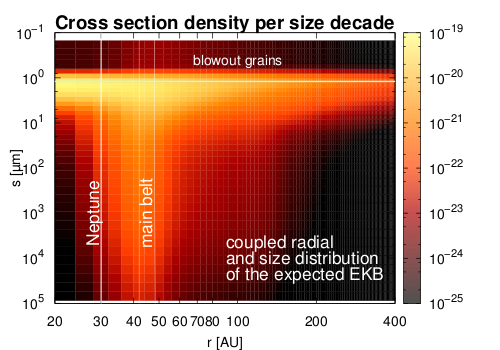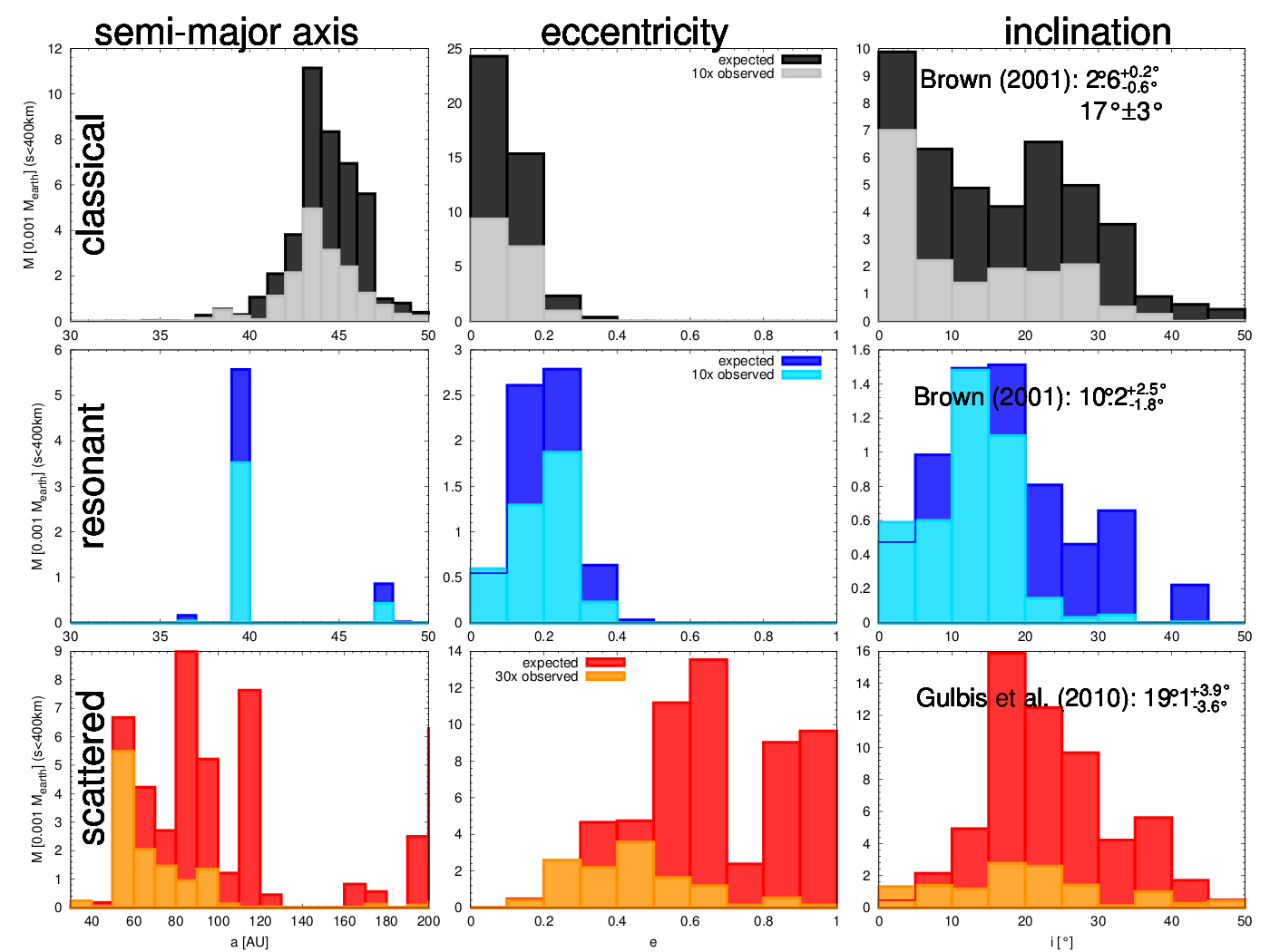The Edgeworth-Kuiper debris disk is (obviously) the nearest debris disk known. Like in all other debris disks large planetesimals produce dust in mutual collisions. The big difference to extrasolar Kuiper belts is that we actually can see the planetesimals. More than 1250 objects have been discovered up to now. Of course a lot more should be there.
Our research on the EKB debris disk successfully eliminated the most two prominent detection biases and revealed the "true" mass and orbital element distribution of the EKB. The total mass of the EKB was calculated to be 0.1...0.2 earth masses
Furthermore we can now simulate the collisional behaviour of these parent population which leads to a radial and size distribution of the dust in the outer solar system.
Read the full story in Vitense et al. 2010
(click on image to enlarge...)
Orbital element distribution of the known and expected trans-neptunian objects. Light colours show the known objects, the darker colours the expected for our classification of the Kuiper-belt objects

Coupled radial and size distribution of the expected EKB

